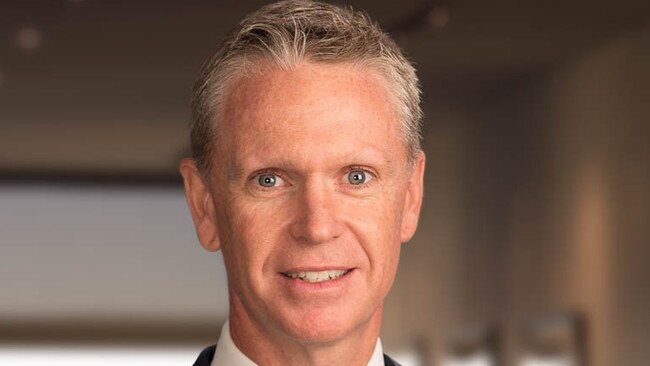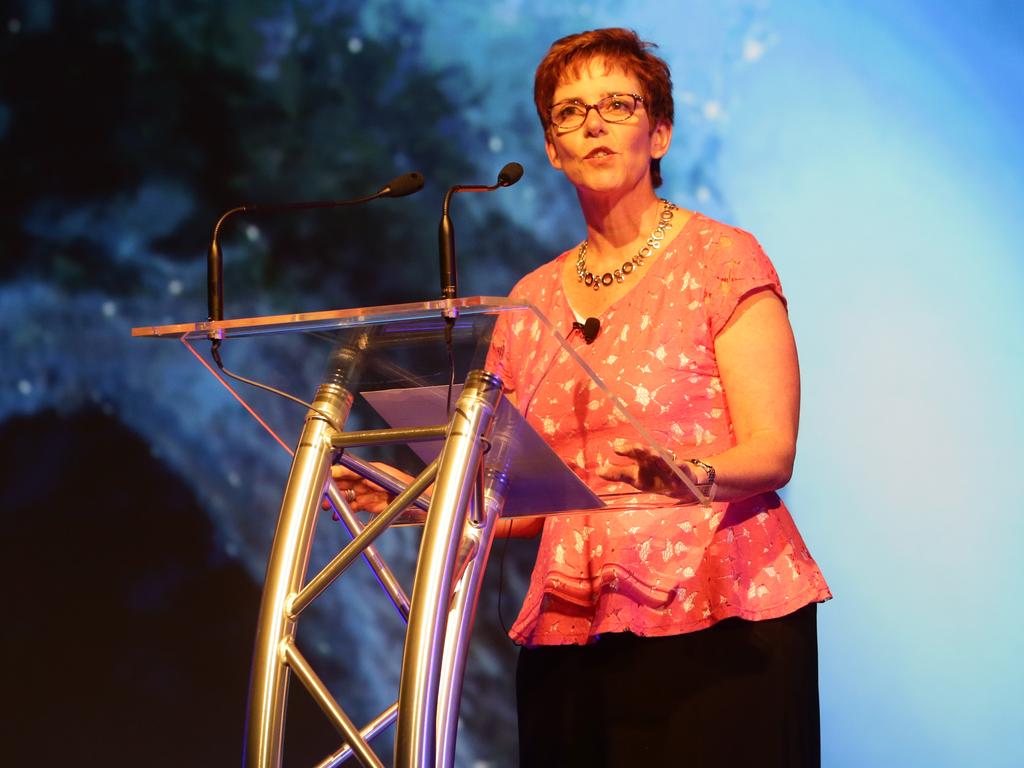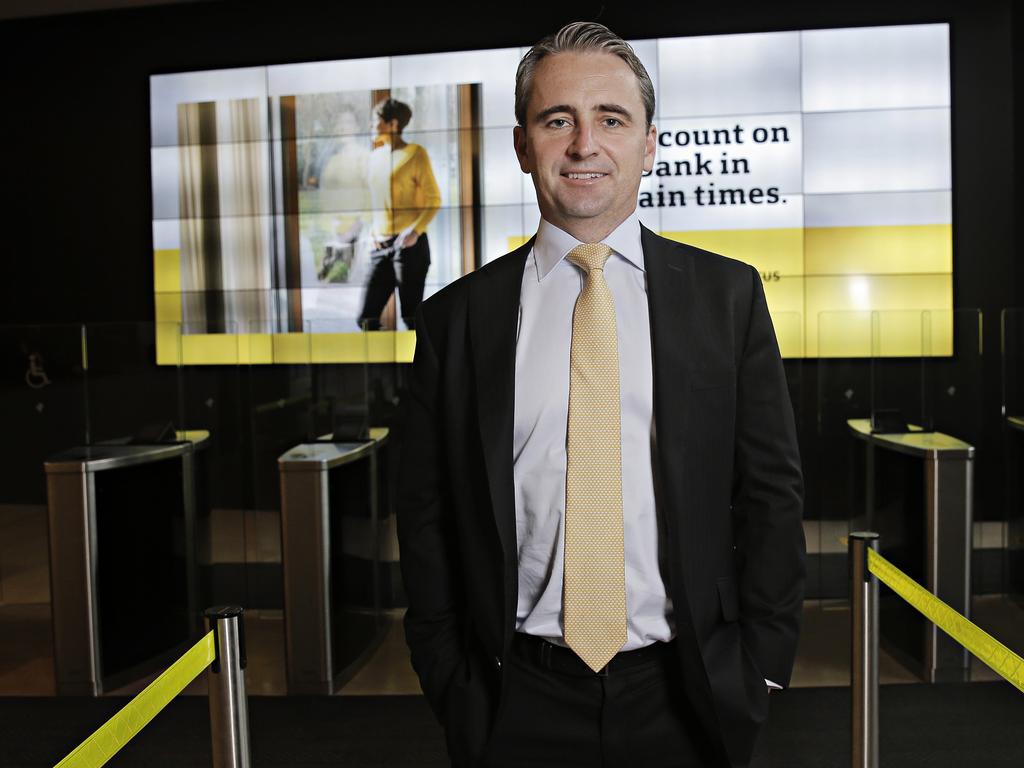Deals picking up, says new Goldman Sachs chair
Christian Johnston’s promotion will see Nick Sims and Zac Fletcher as co-heads of investment banking, with Marissa Freund promoted to head of M&A.

Goldman Sachs’ new Australian chairman Christian Johnston is predicting an upturn in new deals in Australia, as companies position themselves in the wake of the COVID-19 pandemic.
“The dialogue around M&A is starting to pick up materially,” he told The Australian.
“People are now prepared to think about bigger deals — step-out type deals. Even cross-border deals are back on the agenda.
“The mood is improving quite sharply. The boldest companies will see this as an opportunity where they can make a quantum change which will set them up for the future.”
One of Australia’s top merger and acquisition deal-makers, Mr Johnston was speaking after his promotion late last month to chairman of the firm’s Australian and New Zealand operations from his role as head of investment banking, which he had held since 2007.
More than six months into the pandemic, which has seen Goldman Sachs’ Melbourne staff working from home for most of the year, he said Australian corporates were emerging from the pandemic with their balance sheets strengthened as a result of equity raisings and were starting to think about deals to position themselves for the future.
“People have strong balance sheets — some of them enhanced by the equity raisings earlier in the year,” he said.
“Those companies are now in a position to try to take advantage of that dynamic and set themselves up for the future.”
“We are starting to see people saying ‘where do we go next?’.
“Part of it is driven by the shock that everyone has gone through. They are now thinking: ‘Where is our growth going to be? What is the outlook for our industry? How can we make our growth look better or more diversified?’ ”
Goldman Sachs led the Dealogic league table for mergers and acquisitions in Australia in the first six months of the year, with 11 deals worth a total of $US4.28bn ($5.96bn), followed by Bank of America which did seven deals worth $US3.7bn.
Mr Johnston’s promotion will see Nick Sims and Zac Fletcher working together as co-heads of investment banking, with Marissa Freund promoted to head of M&A.
Goldmans has been involved in some of the major deals of the past few years, including the Coles demerger from Wesfarmers, South32’s demerger from BHP, the sale of Arnott’s Biscuits for US food company Campbell Soup and the sale of the Australian and New Zealand divisions of US glass company Owens-Illinois.
The firm is also understood to be advising BHP on a demerger of its coal mining assets and AMP on a potential takeover defence.
Mr Johnston, who would not discuss any specific clients or transactions his firm was advising on, said the increasing discussions about potential deals were not being driven by cheap valuations as the sharemarkets remained strong.
“People are not seeing hugely cheap buying opportunities, but they are seeing strategic opportunities,” he said.
“If it’s the right thing to do, now is a good time to do it, regardless of what others are doing.”
Mr Johnston said Australian corporates were also starting to think about internal growth through capital expenditure.
“It’s not just M&A. They are starting to realise that they need to spend on capex,” he said.
This week’s budget announced concessions for companies with a turnover of up to $5bn to invest in new capital equipment including car and truck fleets, software and new machinery, allowing them to write off the full of cost of the investment in one year — a temporary concession that will be in place until June 2022.
Mr Johnston said while last week’s federal budget would not lead to any new deals by itself, it would help to boost confidence about the economic outlook.
“The government has clearly made a big statement that they are going to do whatever it takes to help get Australia through the recession,” he said.
Attractive place to invest
“Overall, it will lead to positive sentiment in terms of investment spending and hiring, which is positive for growth and generally good for investment banking.” Mr Johnston said that foreign investors continued to see Australia as a good place to invest despite the pandemic.
“Australia over the long term has been viewed as an attractive place to invest from offshore,” he said.
“If anything, the view had got better as a result of the pandemic. As a whole we have handled it relatively well and our economy — despite the pandemic — is relatively strong.
“We remain a really attractive destination for foreign investment and we will continue to see more of it.”
Mr Johnston rejected suggestions that the federal government’s insistence that all foreign equity deals go to the Foreign Investment Review Board for approval this year because of COVID-19 and tighter restrictions on foreign ownership of “critical infrastructure” had slowed down potential foreign investment in Australia.
“Despite the changes, we haven’t seen any difference to deal flows or in getting deals done,” he said.
“There is always going to be uncertainty around certain players, but I don’t think that things are any different now than they were five years ago.”
Mr Johnston said the success of many equity raisings earlier this year in response to the pandemic had shown the efficiency and strength of the Australian capital markets.
Raising capital
“The equity raises for companies which needed to raise equity earlier in the year were all very successful because of the strong institutional and listed equity community in Australia,” he said.
“In terms of raising capital, Australia has a very efficient market.
“I’m not sure there is any other market in the world that could do it as efficiently as we can when it comes to those accelerated offerings and therefore tighter discounts.
“The way our market has evolved — both the practitioners and the regulators — to allow companies to raise equity is world-leading.
“It helped us get through the early phase of the pandemic.”
Mr Johnston said he expected the number of new floats on the ASX to pick up as companies stepped up their decision making and equity markets remained strong.
“There haven’t been a lot of IPOs this year but we expect that to pick up again,” he said.
“There is plenty of demand out there from investors for good assets which are well priced.
“Bad assets which are badly priced are a different story, but for good assets we are seeing a strong IPO pipeline coming forward.”







To join the conversation, please log in. Don't have an account? Register
Join the conversation, you are commenting as Logout